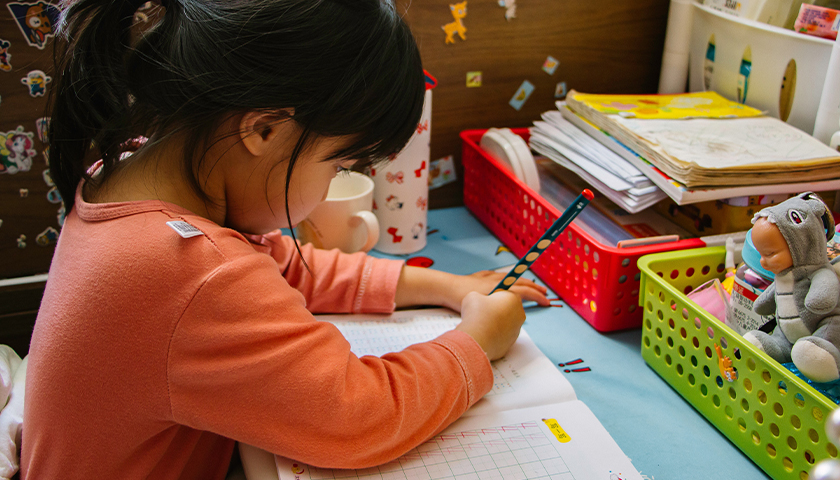by Ninos P. Malek Ph.D
Public education has been under the microscope lately, especially since many states shut down in-person learning last year during the COVID-19 pandemic. With children learning from home via technology, many parents had the chance to hear what their children’s teachers were saying—and they didn’t always like it. In fact, many were downright disturbed by what public schools were teaching their children.
Parents should not be forced to sit by and watch as their children get indoctrinated with progressive ideas they don’t agree with. Assuming it is legitimate for the government—that is, the taxpayers—to fund education, the government should distribute those funds directly to parents in the form of vouchers and allow them to choose where to educate their children. Not only would this allow for more choice in schools, but it would also reduce much of the conflict we are seeing today between parents and school boards across the country.
A common response to voucher proposals is that they would allow parents to use taxpayer dollars to send their children to private religious schools, thus violating separation of church and state. In other words, atheists and progressives argue that they should not have to financially support schools that teach students religious worldviews.
However, this argument misses the reality that many public schools are no longer teaching only the facts of mathematics, science, grammar, government, and history. Rather, these subjects are often being taught through a progressive lens, with critical race theory and other far-left ideological projects featuring prominently in school curricula.
Consider mathematics, a concrete subject which many people assume is being taught in the same way across the country. But even math is not immune from the social and economic justice lens. For example, recognizing allegedly oppressive mathematical practices and training students to use “math to measure the impact of activism” are some of the topics tackled in Seattle’s K-12 Math Ethnic Studies Framework. The curriculum asks questions such as, “Who gets to say if an answer is right?” and “Can you recognize and name oppressive mathematical practices in your experience?”
Sexual education is another contentious area of school curricula. Many parents are just fine with teaching basic human anatomy and the biology of reproduction. However, many others are not fine with schools teaching sexual practices and dating tips to their children, as was proposed in California in 2019.
Furthermore, public school students are often encouraged to engage in public policy and community activism. This can be a good thing, but as public school teachers and union members are predominantly left leaning, they are prone to encourage their students to support liberal and progressive policies and agendas that many parents strongly oppose.
The ideas taught in today’s taxpayer-funded schools come from a particular social and ideological perspective, not a purely factual, unbiased one. In other words, progressives don’t have a problem financially supporting schools that teach students particular worldviews—as long as they aren’t religious or traditionally conservative.
Yet all types of people pay taxes, regardless of their beliefs. As such, parents who hold to traditional moral views are currently required to fund government schools, which sometimes undermine the values they teach their children. If it is wrong to give taxpayer funds to parents to send their children to private religious schools, then it is also wrong to make parents pay for schools which teach the progressive values they oppose. If we must have taxpayer-financed schools, then one group or philosophy should not dominate all the others.
There are two solutions to this problem. The first is that we can eliminate public education altogether. This would likely go over well with childless taxpayers, for they would not be forced to pay for the education of other people’s children.
The second is that we can give parents the freedom to choose a school that supports their worldview. This solution concedes that the government should provide education to all children, but it argues that parents should choose the kind of school and curriculum they want their children to learn from. In such a system, parents would receive vouchers for the amount the state currently allocates per child and would be able to use them at any school, regardless of location or ideology. Providing parents with options would also eliminate much of the anger and conflict we see in current school board meetings.
“The well educating… of children is so much the duty and concern of parents,” philosopher John Locke wrote in his 1690 work, Some Thoughts on Education. He further noted that “the welfare and prosperity of the nation so much depends on it.” Unfortunately, the current system takes the education of children directly out of parents’ hands and feeds their children with content vastly different from their own moral beliefs. This is clearly not working for many families, nor is it working for the school boards increasingly under parental fire. It’s time for a change, and putting the responsibility for a child’s education back in the hands of parents is a good first step.
– – –
Dr. Ninos P. Malek is a Lecturer at San Jose State University and a Professor at De Anza College in Cupertino, California. He earned his Ph.D. in Economics from George Mason University. Dr. Malek has been published in various outlets including Newsweek, The Mercury News and Hoover Daily Report.








